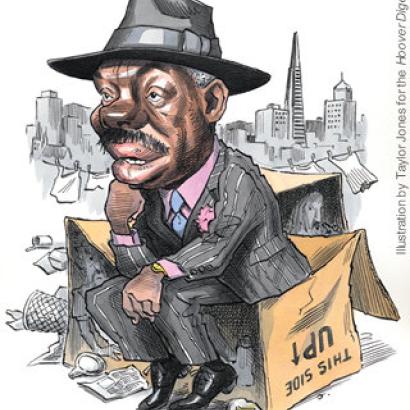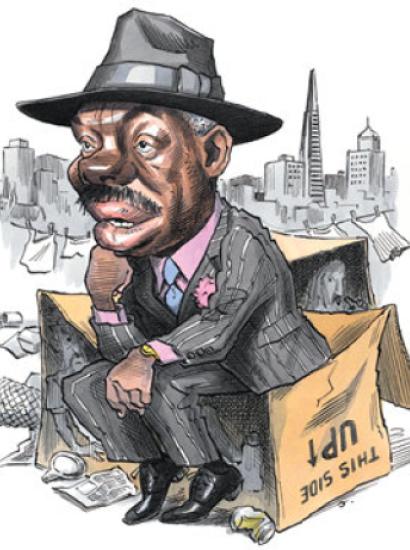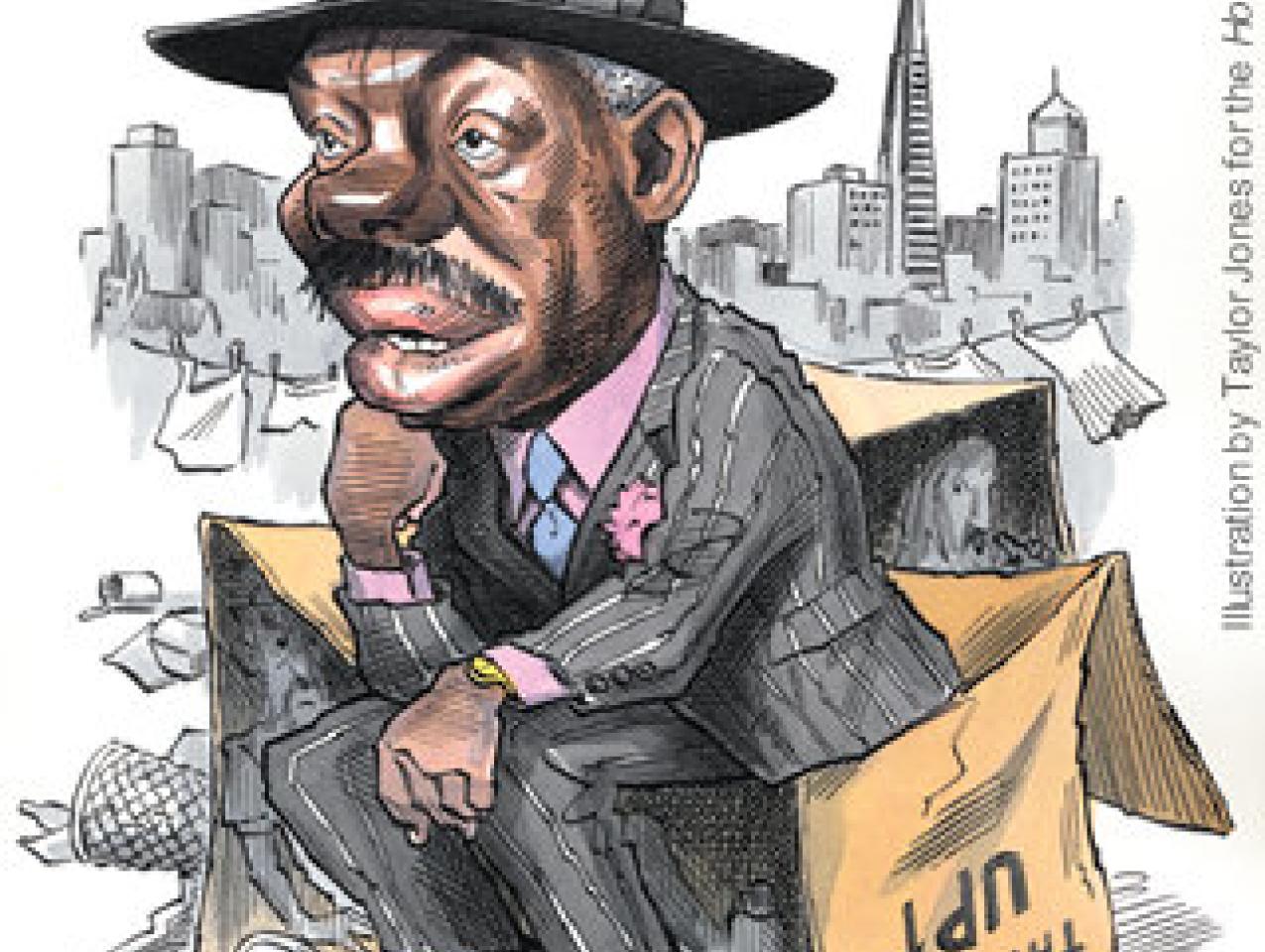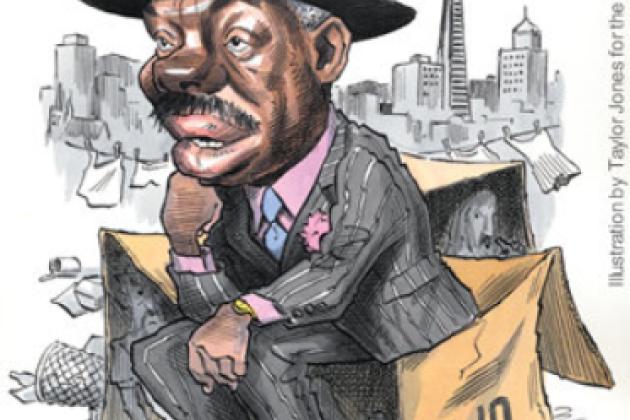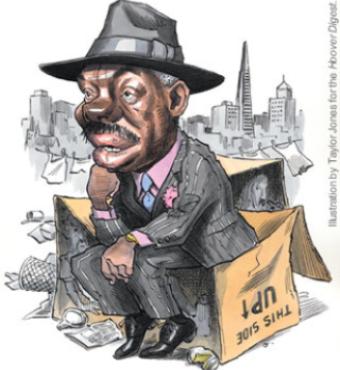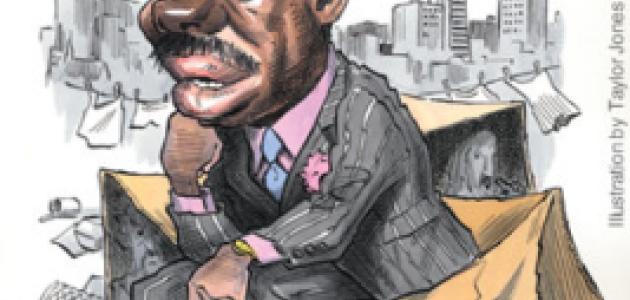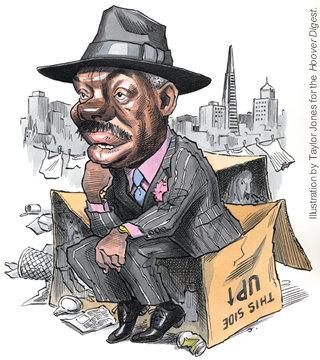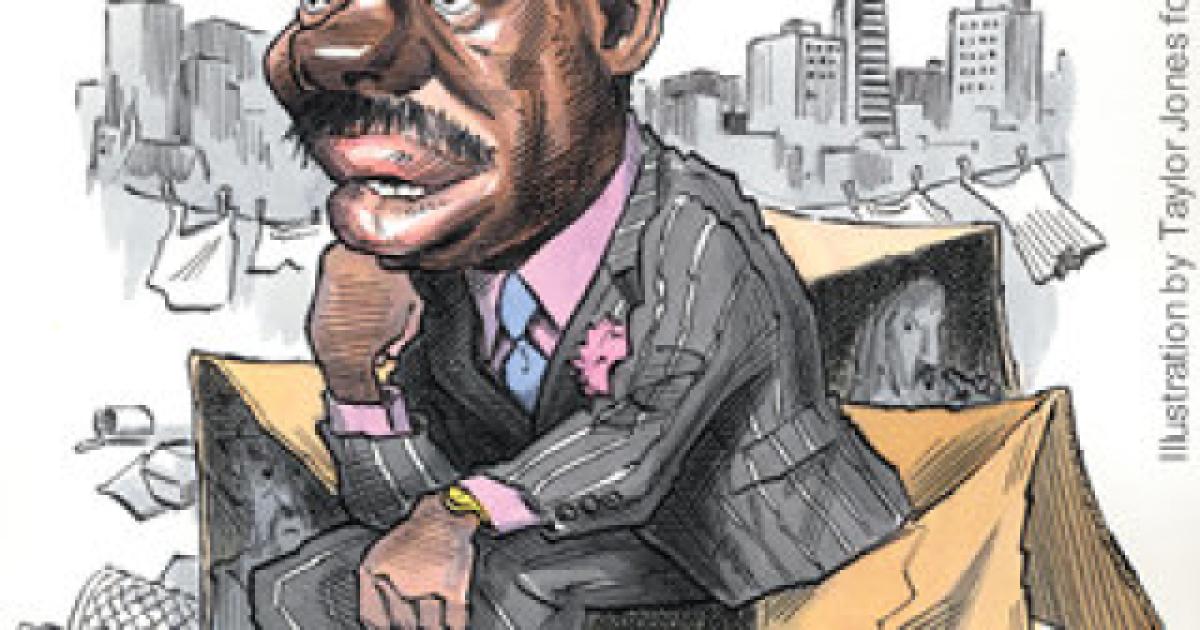- State & Local
- California
- Politics, Institutions, and Public Opinion
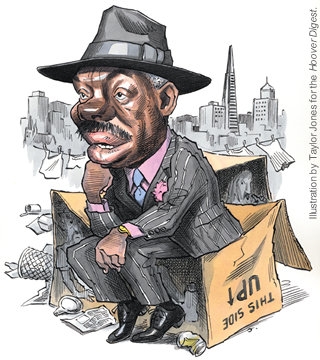
Hopeless on Homelessness?
Homelessness just won't go away. Despite, by one estimate, federal spending in excess of four and half billion dollars on homeless programs since 1985, homelessness appears to be getting worse.
In August, USA Today ran a feature story with the headline Homelessness Grows as More Live Check-to-Check and went on to connect the rising jobless rate to more and more individuals and families living in shelters or on the streets. The story relied on figures from the U.S. Conference of Mayors?annual survey on hunger and homelessness in 25 major cities. According to that report, the annual increase in demand for emergency shelter has grown from a low of 3 percent in 1997 to a 12-year high of 19 percent in 2002.
Although accelerating the past few years, it should be noted that requests for emergency shelter have increased each and every year since 1985, the earliest year for which figures are available. Not surprisingly, federal homeless grants have also expanded. In December 2002, the Bush administration announced the largest amount of homeless assistance in the nation's history—more than $1.1 billion to fund thousands of local housing and service programs around the country.
The national trend is mirrored in the streets of San Francisco. The number of homeless persons has increased the past few years, with the 2002 Homeless Count Report identifying some 8,640 persons, roughly half living on the streets and half in shelters or treatment facilities. The city spends a significant amount of tax dollars on services for the homeless, although no one's sure of the exact figure—it is estimated at somewhere between $100 and $200 million annually.
The portion of aggressive panhandlers has also increased. Many residents are fed up, including business owners and city officials who worry that chronic homelessness is tarnishing the storybook image of the city and jeopardizing its tourism industry.
Taking Matters in Hand
Pressure has steadily mounted on the political establishment over the last few years. Mayor Willie Brown promised to deal with the homeless epidemic, and one of his allies on the Board of Supervisors, Gavin Newsom, proposed a sweeping change to homeless assistance programs operated by the city of San Francisco. The initial legislation quickly succumbed to protesting homeless advocates and left-leaning political forces on the board and was withdrawn in May 2002. That's when things really started to get interesting.
Undaunted by his colleagues' opposition, Supervisor Newsom drafted an initiative—Proposition N—and managed to get it on the ballot in the November 2002 elections. Proposition N, also referred to as Care Not Cash, sought to amend the city's General Assistance (GA) program by substituting care—in the form of housing, psychiatric care, treatment, and so on—or cash. The thinking of Newsom and his supporters was that giving an estimated 2,800 eligible homeless adults cash grants of up to $395 a month was simply irresponsible. Instead of helping alleviate poverty, the stipends went to feed drug and alcohol addictions and served as an incentive for transients to move into the city.
Once enacted, the Care Not Cash ordinance would count housing, shelter, and meal services provided to qualified homeless individuals as part of their cash benefit. Payments would be cut based on the services received (using state-sanctioned criteria), yet individuals would still receive up to $59 a month in cash. Contrary to negative campaign attacks, cash payments would continue to flow to recipients until appropriate services became available. Additionally, General Assistance would no longer be an entitlement; persons who are removed from a housing or shelter program for breaking its rules could lose all their cash benefits.
Voters responded overwhelmingly, carrying the proposition into law by a margin of nearly 20 percent. Many cheered, some jeered; but it appeared that San Francisco was on its way to meeting the challenge of homelessness. A local judge, however, saw things differently. In a lawsuit brought by a GA recipient and a nurse, Superior Court judge Ronald Quidachay sided with the plaintiffs, ruling on May 9, 2003, that the voters were not authorized by California law to set standards for welfare programs. Only the designated government authority, according to his decision, could set these policies since the state had an overwhelming interest in relieving poverty. Care Not Cash was quashed, or so it seemed.
Watching and Waiting
While the city attorney initiated an appeal of the case, Newsom, confident that the people's will would prevail, reintroduced his proposal before the Board of Supervisors on July 5, 2003. Political wrangling ensued, fueled by the upcoming mayoral election in which Newsom (endorsed by Willie Brown) and several other supervisors were pitted to run against one another. Not wanting to give their campaign opponents any positive press by passing legislation already favored by voters, the bill has been batted around over the past few months.
One intriguing variation was a bill passed in the middle of July and signed by Mayor Brown that contained many of the same provisions as Care Not Cash but included a lofty enactment requirement. "Real Housing, Real Care," sponsored by Supervisor Chris Daly, calls for lowering cash payments to the homeless only if stable housing is provided in return—not a shelter bed. Aimed at appeasing Proposition N supporters, the measure is largely symbolic since San Francisco lacks the mandated type of housing. Newsom supported the bill as a step toward getting his own legislation approved, which would trump the existing provisions.
A potential compromise emerged in August 2003. Another supervisor, Tony Hall, crafted what he calls the "Homeless Accountability Act" to provide fiscal protections to the taxpayers of San Francisco. The amendment creates a set-aside fund to ensure that city spending does not increase as cash gives way to care. Thus, his plan creates a set-aside fund wherein cash grants would be deposited. Any funding for the care provisions must come out of this pot and can never exceed the total formerly paid as cash grants to the homeless. The Board of Supervisors unanimously adopted Hall's proposal at its September 16 meeting.
At that same meeting, the supervisors rejected Newsom's Care Not Cash welfare reform measure by a vote of 5 to 6. Concerns over whether there would be enough money to pay for the expected services persuaded a majority of the supervisors to vote against it. Still, the battle is far from over. Forthcoming is a ruling on the city's appeal of Judge Quidachy's decision against Proposition N. More important, the publicity surrounding Care Not Cash has raised Gavin Newsom's profile—he is ahead in the polls and in fund-raising. Should he become the next mayor of San Francisco, reforming the city's homeless policy is sure to be high on his agenda.
Conclusion
What lessons, if any, can we learn from San Francisco's foray into homeless problem solving? Let me offer up three for consideration.
First, giving cash to the homeless is a bad idea, period. The city handing out checks is equivalent to individuals tossing coins or bills in the panhandler's cup. Although the act may make the giver (or city) feel less guilty, it amounts to nothing more than an abandonment of responsible charity.
There is virtually no way to hold the homeless accountable for what they do with the cash. In most circumstances, it will be used to perpetuate an addiction and keep that individual locked in the cycle of homelessness. Replacing cash with care is a necessary reform because it provides opportunities for the homeless to confront their self-destructive behavior. The voters of San Francisco understand this and are unlikely to settle for less.
The second lesson is that, all too often, liberal social policies exacerbate the problems they are trying to solve. What we see being played out in San Francisco is reminiscent of Irving Kristol's definition of a neoconservative as being a liberal who has been mugged by reality. As it confronts its staggering homeless epidemic, perhaps this famously liberal city is slowly undergoing a similar transition. Although the city by the bay won't be electing a Republican mayor any time soon, many of its citizens and leaders are taking their heads out of the fog and facing the truth about homelessness. Providing cash to the homeless in hopes of eluding their stares only encourages more begging. Like so many others before it, this liberal experiment ended in chains, not charity. It too must cease to exist.
A final lesson is that the mentality that gives cash rather than care is one rooted in pity rather than compassion. And, as Michael Beran points out, the act of pitying is always a kind of strength condescending to weakness; it leads nowhere but to further dependence and stratification. The residents of San Francisco, if not their representatives, are moving away from this type of oppression, but we are witnessing only a modest step toward true compassion.
The care components, once implemented, will still be provided largely by either government employees or paid staff of local nonprofits. Care so rendered is a form of substitute compassion—it can mend but it cannot cure our social ills. True compassion restores hope. When ordinary people are moved to help the homeless, we will see dramatic improvement in their lives and the life of the city. It is time the citizens of San Francisco get out of their voting booths and into the streets of service. The activism of initiative must translate into acts of compassion—volunteering to tutor homeless kids, serving meals at shelters, mentoring job seekers, encouraging addicts to stay clean, and performing countless other deeds. Only then will there be cause for saying that this city knows how to care for the homeless.








